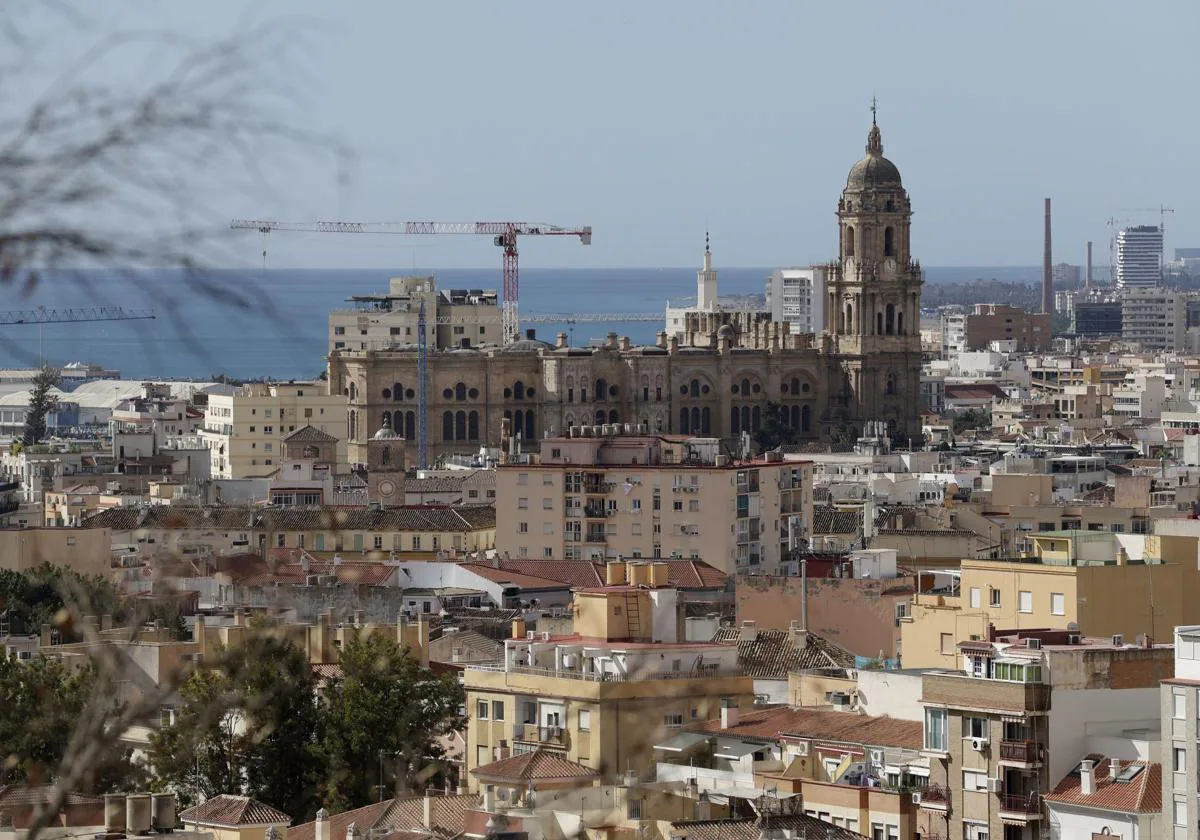Renting a flat in Malaga costs same as Spain's Balearic Islands, accounting for more than half of household income
Mortgage repayments in the province also swallow up some 44% of disposable income, a figure higher in this case than in the archipelago
The percentage of household income needed to afford rented housing now reaches 52% in the province of Malaga, as it does in Spain's Balearic Islands. In no other part of the country is it higher. In third place in the ranking is Barcelona, where renting a flat accounts for 44% of disposable household income.
In these three provinces people can only access rented housing by paying three percentage points more of their income. This has been the increase in the last year as, 12 months ago, the income proportion required to pay the monthly rent was less than half in Malaga and the Balearic Islands, while in Barcelona it was kept at 41%.
This data is from the real estate portal Idealista, which explains that the percentage of household income needed to access a rental property grew to 35% over the last year in Spain as a whole. This represents a rise of four percentage points compared to the data from this time last year, taking a typical two-bedroom property as the guide. "The lack of supply and the consequent increase in prices is the reason why the rental proportion of salary has reached the maximum recommended by the experts," says Idealista. Since even 35% is already somewhat above the 30% guideline that money experts estimate rent payments should not exceed as its proportion of disposable income, it is very concerning that the effort needed to cover the rent in Malaga or the Balearic Islands is 17 percentage points higher.
In total, there are ten provinces in which the percentage of family income required to pay the rent is above 30%. Besides the aforementioned two, they are Valencia, Santa Cruz de Tenerife, Alicante, Madrid, Las Palmas and Guipúzcoa. Girona and Seville are bang on 30%. Three other Andalusian provinces appear immediately after these, namely Granada (29%), Cadiz (28%) and Huelva (26%). These figures contrast with the 18% of family income that in Jaen has to be spent on rent on average.
If the analysis is limited to the provincial capitals, Malaga city is third in Spain for the roportion of income to rent: 43% of the family income, only below the 46% required in Barcelona and 48% in Palma de Mallorca. In this case, there are also ten provincial capitals in which paying the rent to live there takes more than 30% of the family income: Malaga, Barcelona and Palma are joined by Alicante, Valencia, Madrid, San Sebastian, Santa Cruz de Tenerife, Las Palmas de Gran Canaria and Bilbao. Seville comes immediately after at 29%.
Mortgages take up 44% of income
What is happening in the housebuying market in comparison? In this case, the province of Malaga is in second place for property purchases swallowing up a larger proportion of houshold income at 44%. This percentage is only exceeded by the Balearic Islands, where its inhabitants have to spend 46% of their income to cover a "typical" mortgage, in other words one that has the usual characteristics in terms of duration and interest rate.
For housebuying there are four Spanish provinces where the income to mortgage rate is over 30%: in addition to the Balearic Islands and Malaga, Santa Cruz de Tenerife and Alicante are on this list. In the region of Andalucía, Cadiz comes second, but a good way behind, after the Costa del Sol province. Almost a quarter of the family income has to be spent on paying the mortgage in Cadiz, practically the same as in Spain as a whole (23%).
In terms of the provincial capitals, Malaga is third in Spain for where the highest percentage of household income is required to pay the mortgage, currently 37%. Above this are San Sebastián, where the figure rises to 41%, while in Palma de Mallorca it reaches 47%. Madrid (36%) and Barcelona (32%) follow the Costa del Sol capital. From there the rate drops to below 30%, although in Cadiz (29%) it is close to that 30% 'barrier'. Jaen is the city where the least effort is required to afford a home: barely 11% of the household income has to be spent on this debt, while in Huelva the proportion is 13%.

